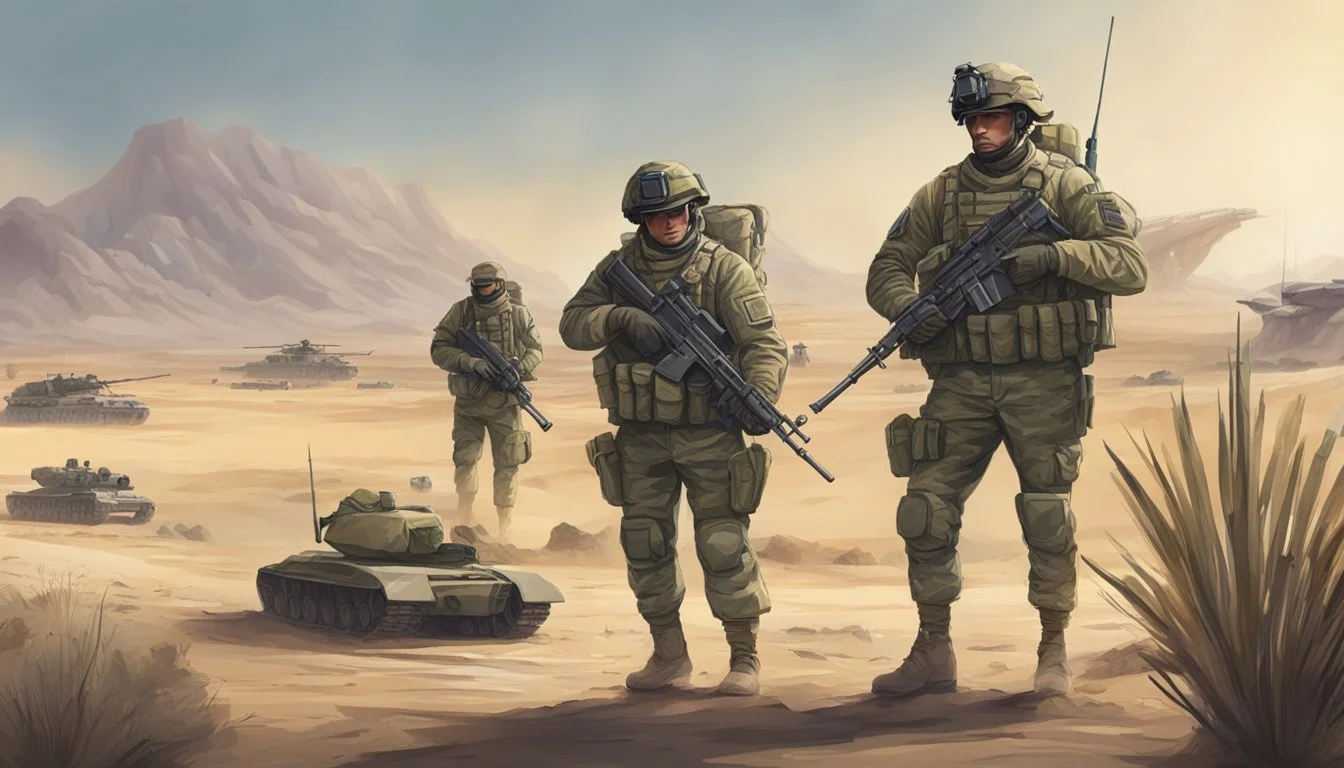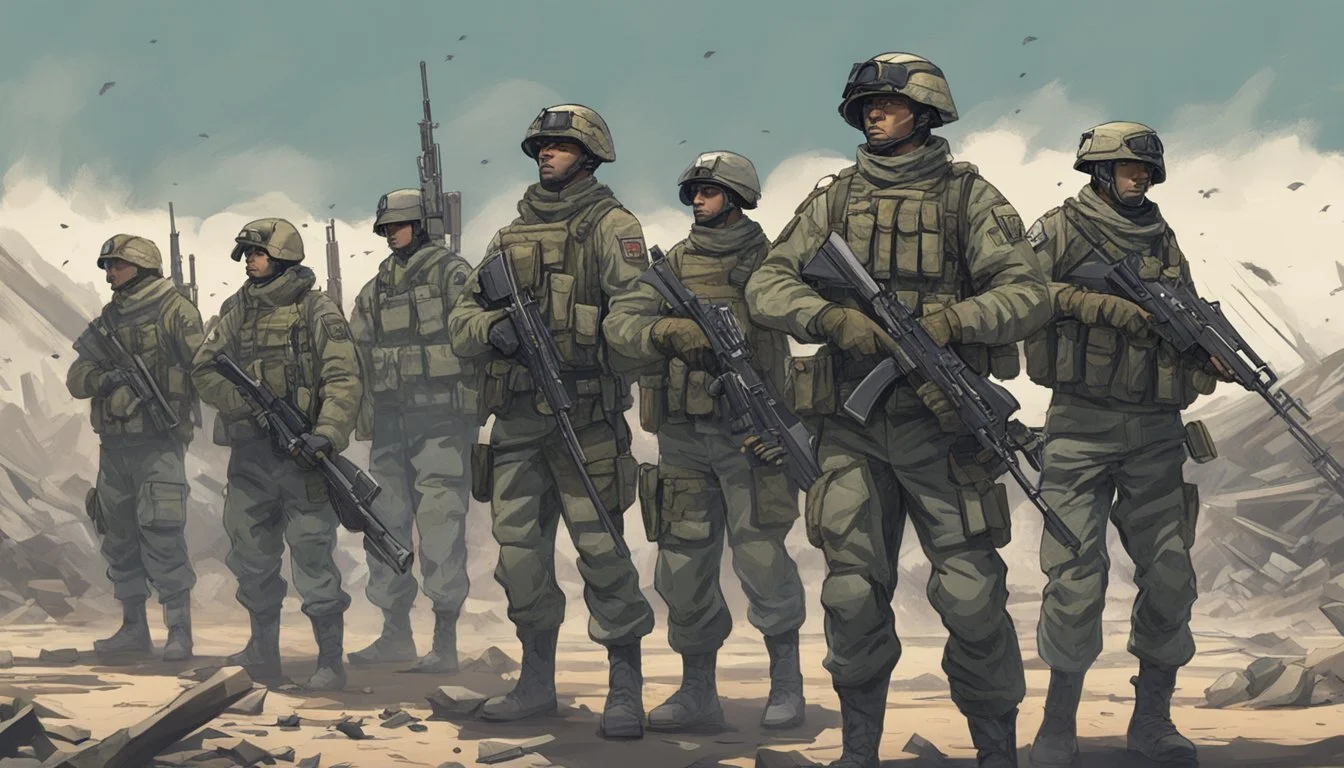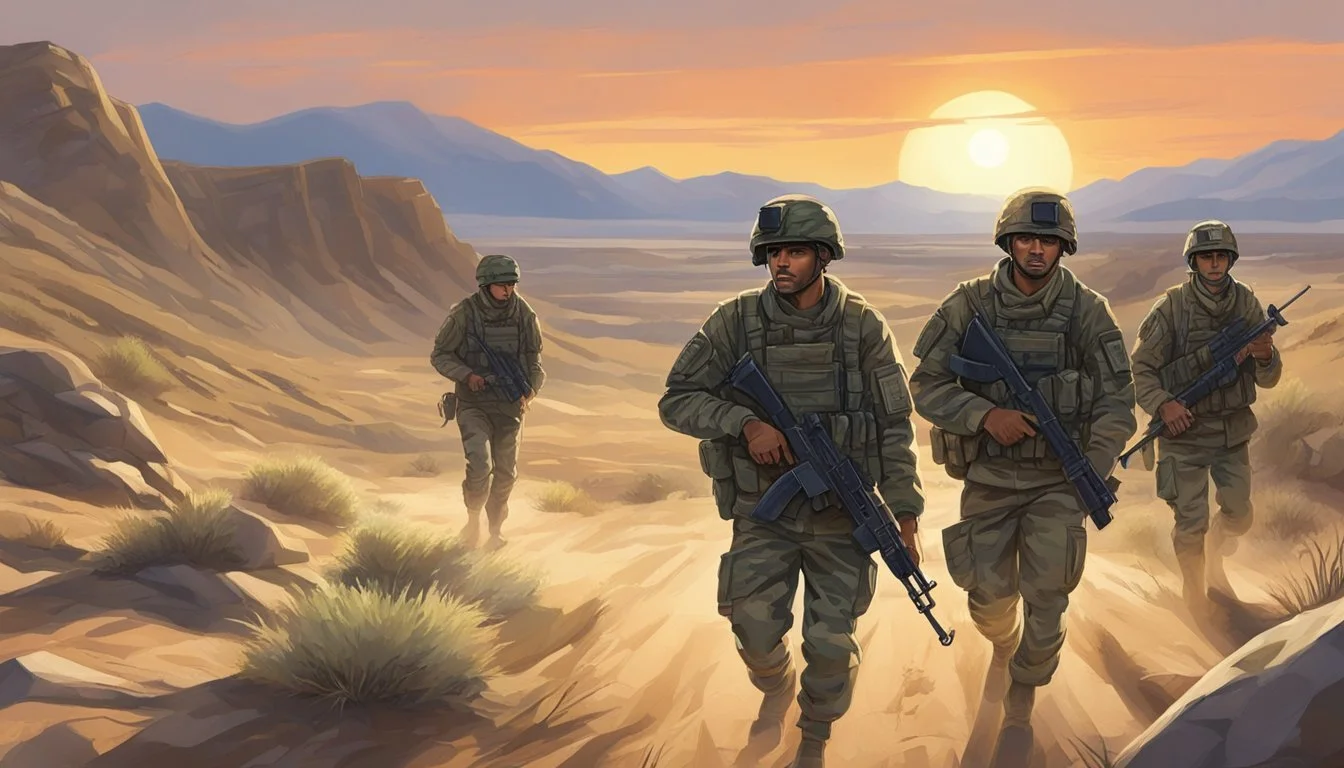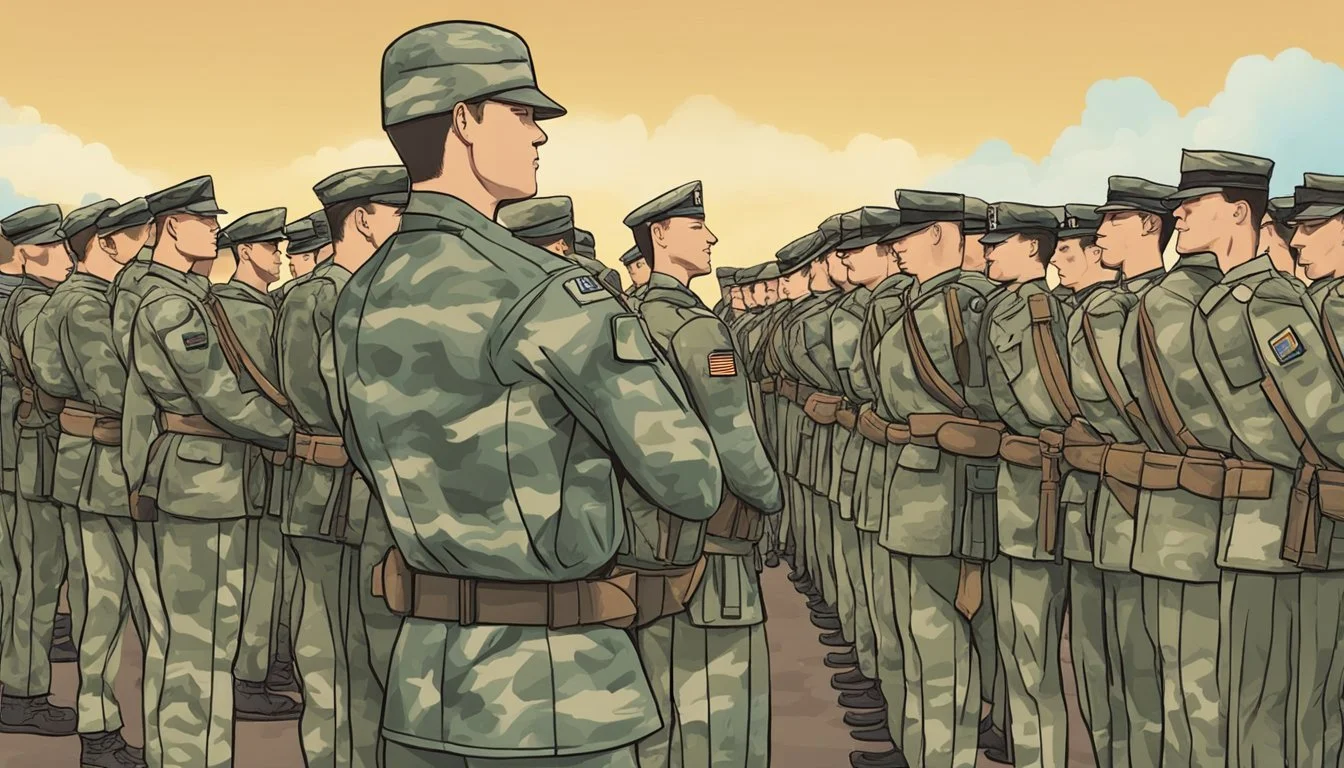Exposing War Crimes and Moral Dilemmas in Afghanistan
Exposing War Crimes in Afghanistan
"The Kill Team" is a gripping 2013 documentary that exposes shocking war crimes committed by U.S. soldiers in Afghanistan. Directed by Dan Krauss, the film centers on Specialist Adam Winfield, a young infantryman who becomes a whistleblower after witnessing atrocities committed by members of his platoon.
The documentary sheds light on the moral complexities faced by soldiers in war zones and the challenges of reporting misconduct within the military system. It delves into the experiences of Winfield and his family as they navigate the consequences of exposing these crimes, including potential charges against Winfield himself.
Winner of the Best Documentary Feature at the 2013 Tribeca Film Festival, "The Kill Team" offers a raw and unflinching look at the dark side of warfare. The film raises important questions about military ethics, accountability, and the psychological toll of combat on young soldiers.
Background and Synopsis
"The Kill Team" is a documentary that explores a shocking case of war crimes committed by U.S. soldiers in Afghanistan. The film delves into the moral complexities and psychological pressures faced by troops in combat zones.
Critical Reception
The documentary received widespread acclaim for its unflinching portrayal of a difficult subject. Critics praised director Dan Krauss for his balanced approach, presenting multiple perspectives without passing judgment. The film's intimate interviews and raw footage were highlighted as particularly effective in conveying the emotional toll on all involved.
Many reviewers noted the documentary's ability to raise important questions about military culture and the ethical challenges of warfare. Some critics found the pacing slow at times but acknowledged this allowed for deeper reflection on the issues presented.
Release and Distribution
"The Kill Team" premiered at the Tribeca Film Festival in April 2013. It went on to screen at numerous international festivals, garnering awards and recognition. The film had a limited theatrical release in the United States in July 2014.
Following its theatrical run, the documentary became available on various streaming platforms, increasing its accessibility to a wider audience. PBS aired the film as part of its Independent Lens series in 2014, further expanding its reach.
The film's release sparked discussions about military accountability and the psychological impact of war on soldiers. It also led to increased scrutiny of the incidents portrayed in the documentary.
Director's Vision and Approach
Dan Krauss crafted a compelling documentary that exposes the moral complexities faced by soldiers in wartime. His meticulous approach blends interviews, archival footage, and cinematic techniques to create an immersive viewing experience.
Dan Krauss
Krauss utilized a linear narrative structure interspersed with interviews to tell the story of "The Kill Team." He focused on highlighting the psychological challenges soldiers encounter in combat zones.
The director employed visual techniques to enhance the documentary's impact. Carefully selected archival footage and reenactments added depth to the storytelling.
Krauss aimed to present an unbiased account of events, allowing viewers to form their own opinions. He conducted extensive research and interviews with key participants to ensure accuracy.
The film's soundtrack played a crucial role in setting the tone and heightening emotional moments. Krauss worked closely with composers to create a score that complemented the subject matter.
Adam Winfield's Story
Adam Winfield, a 21-year-old infantryman, found himself at the center of a moral crisis during his deployment to Afghanistan. His experiences shed light on war crimes committed by his platoon and the challenges he faced in reporting them.
Infantryman's Dilemma
Winfield joined the U.S. Army with a sense of duty and patriotism. During his tour in Afghanistan, he witnessed disturbing behavior from his fellow soldiers. His platoon began targeting innocent civilians, staging killings to appear as legitimate combat engagements.
Winfield attempted to alert military authorities about these atrocities. He reached out to his father, Chris Winfield, for help in reporting the incidents. Despite their efforts, they faced significant obstacles in getting the military to take action.
The young soldier found himself in an impossible situation. He feared retaliation from his unit if he spoke out, yet struggled with the guilt of remaining silent about the war crimes he witnessed.
Legal Battles and Outcomes
After returning from deployment, Winfield became a key figure in exposing the crimes committed by his platoon. His decision to come forward as a whistleblower led to a complex legal battle.
The U.S. Army initially charged Winfield with murder, despite his attempts to report the crimes. This decision sparked controversy and raised questions about the military's handling of whistleblowers.
Winfield's case eventually concluded with a plea deal. He pleaded guilty to reduced charges of involuntary manslaughter and was sentenced to three years in prison. The outcome highlighted the complexities of military justice and the challenges faced by soldiers who attempt to report misconduct.
His story became the subject of "The Kill Team" documentary, bringing attention to the ethical dilemmas soldiers face in combat zones and the need for improved systems to report war crimes.
Exploring the Military Perspective
The Kill Team documentary sheds light on complex ethical issues within the military. It examines how the Army responded to war crimes and the support systems in place for soldiers facing moral challenges.
Ethical Implications
The documentary exposes the ethical dilemmas soldiers encounter in combat zones. It reveals how the pressure to follow orders can conflict with personal moral values. Soldiers often struggle to balance their duty with ethical considerations.
The film highlights cases where military personnel crossed ethical lines. It shows how combat stress and peer pressure can lead to moral compromises. These situations raise questions about the military's ethical training and preparedness.
The documentary also explores the consequences of reporting misconduct. It demonstrates the personal and professional risks whistleblowers face within military ranks.
Army's Response
The U.S. Army's reaction to the events portrayed in The Kill Team was swift and decisive. Military leadership initiated investigations into alleged war crimes. They aimed to uphold military justice and maintain public trust.
The Army implemented stricter oversight measures. These included enhanced ethical training programs and improved reporting mechanisms. The goal was to prevent similar incidents in the future.
Military courts prosecuted soldiers involved in unlawful killings. This sent a clear message about the consequences of violating rules of engagement. The Army's response emphasized accountability at all levels of command.
Support for Soldiers
The documentary highlights the need for better support systems for military personnel. It shows how inadequate mental health resources can contribute to ethical lapses.
The Army has since expanded psychological support services. These include counseling and stress management programs. The military now places greater emphasis on addressing combat-related trauma.
Peer support groups have been established to help soldiers navigate moral challenges. These forums allow personnel to discuss ethical concerns without fear of reprisal. The Army also improved its whistleblower protection policies to encourage reporting of misconduct.
Thematic Analysis
"The Kill Team" documentary explores profound ethical quandaries and the devastating consequences of war. It examines the erosion of moral boundaries in combat zones and the far-reaching impact on local populations.
Morality of Warfare
The film delves into the complex moral landscape faced by soldiers in Afghanistan. It highlights how the pressure of combat and the desire for action can lead to severe ethical breaches. The documentary showcases the internal conflicts of soldiers who witness or participate in war crimes.
These moral dilemmas are amplified by the blurred lines between combatants and civilians in modern warfare. The film raises questions about the responsibility of leadership in preventing such atrocities.
It also examines the psychological toll on soldiers who struggle with their actions. The documentary presents a stark portrayal of how warfare can corrupt individuals and units.
Impact on Afghan Civilians
"The Kill Team" sheds light on the devastating effects of war crimes on Afghan civilians. It portrays the fear and mistrust that develops in local communities due to the actions of rogue soldiers.
The film illustrates how these incidents undermine the broader mission of winning hearts and minds. It shows the long-lasting trauma inflicted on families and villages targeted by military personnel.
The documentary also touches on the wider geopolitical ramifications of such actions. It demonstrates how war crimes can fuel anti-American sentiment and hinder diplomatic efforts in the region.
Through interviews and footage, the film gives voice to Afghan victims, humanizing the often overlooked casualties of war.
Cultural and Social Impact
"The Kill Team" documentary sparked intense public debate and media scrutiny around military ethics and accountability. It challenged viewers to confront uncomfortable truths about the realities of modern warfare.
Public Perception
The film profoundly impacted public understanding of war crimes and military culture. Many viewers expressed shock at the moral compromises depicted and the psychological pressures faced by soldiers. Online forums buzzed with discussions about accountability and the ethics of combat.
Some military families felt the documentary provided important insights into the challenges their loved ones faced. Others criticized it as potentially damaging to troop morale and public support for the military.
Veterans' groups had mixed reactions. Some praised the film for exposing systemic issues, while others felt it unfairly portrayed soldiers.
Media Coverage
"The Kill Team" garnered significant attention from major news outlets and film critics. Reviews praised its unflinching examination of a difficult subject. Many journalists used the documentary as a springboard to explore broader issues of military justice and oversight.
The film's release coincided with ongoing debates about U.S. military interventions abroad. This timing amplified its impact, with pundits citing it in discussions about foreign policy and rules of engagement.
Some military-focused publications criticized the documentary's portrayal of events, arguing it lacked context. Nonetheless, its revelations prompted calls for further investigation into similar incidents.
Awards and Recognition
The Kill Team documentary received critical acclaim and garnered several prestigious accolades for its powerful storytelling and unflinching examination of war crimes.
Tribeca Film Festival
The Kill Team made its world premiere at the 2013 Tribeca Film Festival, where it secured the top honor in the documentary category. The film was awarded the Grand Jury Prize for Best Documentary Feature, a significant recognition of its artistic merit and impact.
The jury praised the documentary for its exploration of the systemic issues in military culture that can lead to dehumanization and violence. They highlighted how the film exposes flaws in soldier preparation that enable viewing people as targets rather than human beings.
Beyond Tribeca, The Kill Team continued to receive accolades. It won the Truer than Fiction Independent Spirit Award, further cementing its reputation as a groundbreaking work of nonfiction filmmaking. The documentary was also nominated for a Directors Guild of America award in the documentary category.






